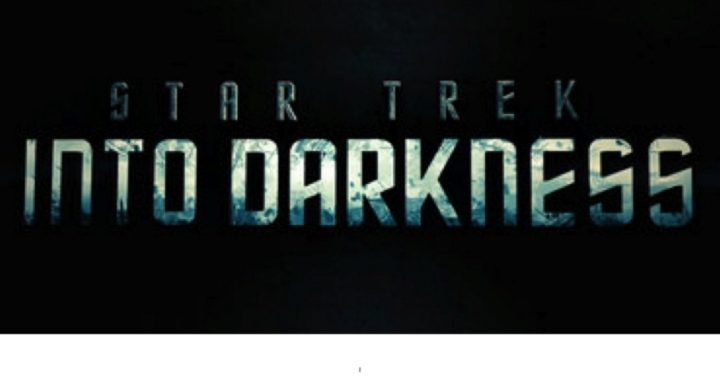
Star Trek Into Darkness may feel, to some moviegoers, as if it treks into darkness, as it is at times convoluted. The movie seems to have multiple beginnings and multiple ends, and the sequences can be a bit tricky to follow. But the film does address a number of poignant points that have close comparisons to our contemporary history and to the Christian faith, and for those reasons, the film is redeemed. Plus, one cannot simply ignore some of the more exciting and entertaining moments that will keep moviegoers engaged.
Star Trek Into Darkness gets off to a difficult start for Captain James Kirk (Chris Pine). Kirk has blown the Enterprise’s cover when he rescues his First Officer Spock (Zachary Quinto) from a volcano and is spotted by a primitive culture in the process. Kirk’s actions showed total disregard for Federation rules and the orders of his superiors. As a result of that, and the cavalier manner in which he discusses this rule violation, he earns a demotion, as Captain Pike’s (Bruce Greenwood) first officer, with Spock being reassigned to another ship.
Kirk does not have very long to lick his wounds, however, as tragedy strikes in the form of John Harrison (Benedict Cumberbatch), a terrorist who targets the Federation, killing a number of its finest officers.
Harrison then retreats into hostile, Klingon, territory that is supposed to be unapproachable by the Enterprise, the “one place we just can’t go,” as observed by Scotty (Simon Pegg), the Enterprise’s engineer.
But Kirk is not one to allow artificial limitations to infringe upon what he believes to be his duty. He volunteers his services to Starfleet’s admiral, who agrees to allow Kirk to pursue Harrison, on the condition that the Enterprise remain outside Klingon territory and that Kirk kill Harrison from afar with a special weapon. The admiral believes that this approach will prevent a galactic war.
Sure it will.
Naturally, there are some obvious underlying issues with Kirk’s plan, the most important of which is pointed out by Spock: It’s completely corrupt to murder Harrison without some sort of due process, even if the mission does come under the direct order of an admiral.
One cannot help but draw connections between this element of the film and our government’s use of drones against so-called terrorists who have been placed on a “kill list” and therefore lose their constitutional rights of due process. Can one honestly defend those who unquestionably carry out murder simply because they have been instructed to do so?
However, the mission of the Enterprise crew has long been to help promote peace while simultaneously preserving a sense of justice, and as such has operated under a strict set of regulations that have helped to maintain its ideals — in the same way that the U.S. Constitution has promoted the general welfare of the American people, while preserving the God-given rights of its people.
Unfortunately, as in the case of the U.S. Constitution, Starfleet regulations have their violators. And just as the American government features an array of people who purport to work for the best interest of the nation even as they are effectively undermining the rights of the American people, the Enterprise has its deceivers, whose self-interests are more important that the interests of the Enterprise.
And therein lies the conflict of Star Trek Into Darkness.
The film explores some dicey and all-too-familiar scenarios that, in the end, should promote a sense of patriotism in the moviegoer as they ultimately underscore the need for a rule by law, not by men.
Likewise, Kirk’s fundamental flaws are not out of the ordinary, and have likely been shared by most audiences. His hubris and lack of humility land him in some rather difficult spots and have the potential to make him a danger to the Enterprise, his crew, and himself. And his overwhelming need for revenge and retribution blind him to general notions of right and wrong.
This theme of the film is perhaps the most significant. As is cautioned by Christian faith, the point is that doing the right thing is not easy, but one should not sacrifice morals to pursue a misguided sense of justice guided by a desire for revenge.
It is somewhat well known that the creator of Star Trek, Gene Roddenbery, did not adhere to Christian doctrine, instead placing his faith in technology and science, and this film does not violate Roddenberry’s belief system too much with obvious Christian symbols and doctrine. In fact, when one of the crew members regards a critical moment on the Enterprise as a miracle, Spock quickly dismisses that assertion, stating, “There are no such things.”
It might be worth mentioning that there is a moment in the film when one of our heroes selflessly dies so that others may live and is brought back to life again. No Christian allusions there.
The good news is that the good guys predictably persevere in the end, and they do so by staying true to their sense of morality, which never seems to fail them or steer them in the wrong direction. Even when the right choices seem to involve self-sacrifice, the heroes proceed.
The presence of these valuable elements could have made Star Trek Into Darkness a great film for moviegoers of all ages, but alas, there the film has its transgressions. There is an abundance of foul language and some stark violence, though the violence is likely to be expected given the plot elements. We are dealing with intergalactic relationships. Should we really expect them to be much different from international relationships?
Those who go to the movies hoping to be dazzled by cinematography and effects will likely not be disappointed by Star Trek Into Darkness.
Overall, Star Trek Into Darkness is an engaging film about how one’s personal flaws can bring about dramatic results. It emphasizes the importance of not compromising one’s values, and underscores the beauty of self-sacrifice. While it may be confusing for some moviegoers, it is an all-around entertaining film, though it should be reserved for older moviegoers.




